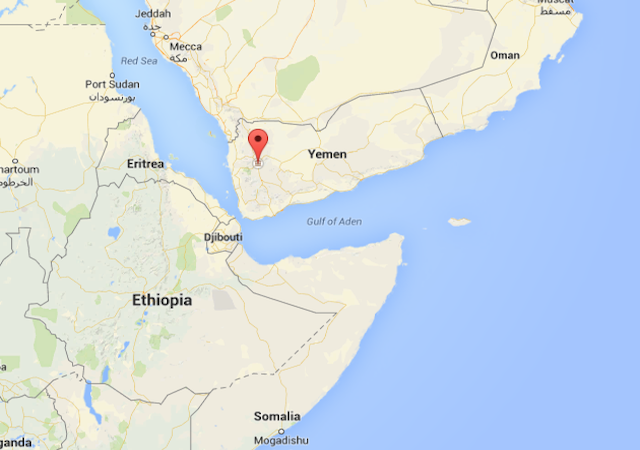UN special envoy to Yemen goes under the bus
Diplomacy turns to violence

The wheels on the bus go thump-thump-thump…right over the guy tasked with fixing an impossible mess.
It’s official: Jamal Benomar, the UN’s special advisor on Yemen has resigned. For the past four years, Benomar has been the person tasked with guiding the various factions in Yemen through a peaceful, post-Arab Spring transition. The UN hasn’t provided any information regarding a possible reassignment for Benomar; however, when asked who was slated to replace him, officials said that they would select “someone who can talk to all parties.”
Because that’s what’s happening in Yemen right now—talking. But I digress.
For a while, it seemed like Benomar was making progress—but then things began to unravel:
U.N. diplomats, speaking on condition of anonymity because talks were private, said that ministers from the Sunni-led Gulf Cooperation Council met Secretary-General Ban Ki-moon during a trip to Kuwait in late March and told him of their unhappiness with Benomar.
The pressure on Benomar, a Moroccan-born diplomat who holds British citizenship, had grown as the Houthis advanced in recent weeks. By late last week, Saudi Arabia’s ambassador to the U.N. was strongly hinting that Benomar was on the way out.
“We continue to support the mission of the special adviser to the secretary-general. … Whoever the secretary-general designates as his special adviser, for the time being Jamal Benomar, yes,” the ambassador, Abdallah Al-Mouallimi, told reporters Friday.
Benomar, who was held as a political prisoner while a student in Morocco, had been tasked in 2011 with guiding a peaceful transition for Yemen from the chaos of the Arab Spring. For a while, Benomar earned praised as Yemen seemed like a model for such a transition, but as the new U.N. statement pointed out, “unfortunately, this process was interrupted with the dramatic escalation of violence.”
This was posted to Benomar’s official Facebook page:
Note to correspondents on Jamal Benomar stepping down as Special Adviser on Yemen Jamal Benomar, the Special Adviser…
Posted by Jamal Benomar جمال بنعمر on Thursday, April 16, 2015
Benomar’s original peace talks for Yemen involved a push for a “power-sharing” plan that would involve all factions in the decisionmaking process—including the Iranian-backed Houthi rebels. However, as time wore on, the Houthi became increasingly hostile to the plan, claiming that it marginalized their interests. Additionally, both the Saudi and Yemeni Hadi governments took issue with Benomar’s plans.
Is the criticism warranted? Maybe. The UN’s efforts in the region have spiraled, it’s true; but I’m not sure it’s fair (one of the only times I’ll use that particular F-word in the context of politics) to hold the UN responsible for what radical factions choose to do on their home turf. The Houthi are backed by a powerful and intimidating Iranian government; the Saudis have similar interests in maintaining a powerful presence in the region, and have proven that they’re willing to resort to airstrikes to maintain it. Yemen’s al-Qaeda branch is influential, and has exploited the conflict to its advantage.
Talking fixes none of this.
None of this is intended as an all-out defense of Benomar’s efforts. Even Western powers willing to back coalition airstrikes in Yemen are quickly losing patience with the situation, and obviously there’s a lot more to the story than the UN will ever willingly reveal.
But what I will say is that laying blame for the situation at the feet of Benomar—or any diplomat, for that matter—is a smoke screen meant to be consumed by an audience that remains largely ignorant of how the conflict in Yemen has evolved. Diplomacy is important, but it isn’t the only, nor the most important, tool we have in the battle against extremism.
Donations tax deductible
to the full extent allowed by law.








Comments
Would this be the same UN that just placed IRAN on their Economic and Social Council’s Commission on the Status of Women?
That’s a truer exemplar of the UN’s “efforts in the region” of the Middle East. It’s also a better and bigger story than Benomar, hint, hint.